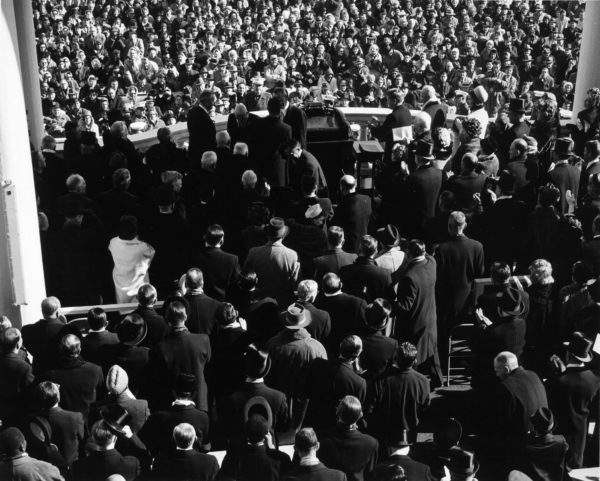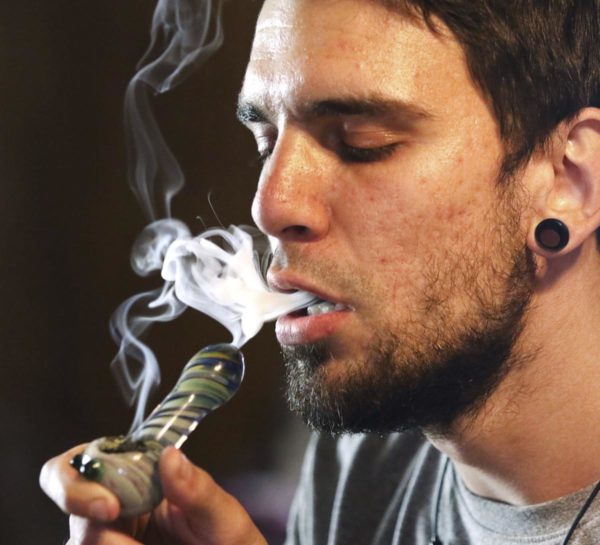
A view of the Inauguration of President John F. Kennedy at which he issued his famous call for public service.
In his inaugural address nearly 60 years ago, President John F. Kennedy implored the nation: “Ask not what your country can do for you — ask what you can do for your country.” An army of young people, inspired by Kennedy’s youthful leadership and celebration of service, entered public service in droves.
Today, we live in a polarized time marked by great distrust in public institutions and our democratic process. This distrust becomes animosity between members of opposing political parties and dysfunction in government processes. This hinders our political process and has led to government shutdowns, the impeachment of a president, and the inability to pass meaningful laws. Young people are also dissatisfied with our highest government official: a recent poll from the Harvard Public Opinion Project cited a 71 percent disapproval rating for President Trump among voters aged 18-29. The political process is falling apart, and the need for civic and political engagement is at an all-time high.
While politics encourages conflict between parties hoping to gain power, public service brings people together. The elements of government still held in high esteem can be found in public service — firefighters, teachers, paramedics — the people who help our local communities thrive. The public’s dissatisfaction with politics does not impede the efforts of our local heroes. Public service is the beating heart of a thriving community.
While these public servants help our communities run and are more than worthy of our gratitude, the public servants of politics — activists, nonprofit organizations, local candidates running for office, voter engagement volunteers — are no less respectable. Those who seek to improve society and promote the general welfare in our communities are also providing a public service. These are the often undervalued players who fight to make a big impact in our communities.
What often takes the most common form of political public service is activism. Community activists organize to empower individuals and bring them together to brainstorm solutions to local issues. Activism reaches beyond the political divide to organize on a grassroots level to fix issues that the government ignores. Local political engagement is even more important as citizens make decisions about issues that are unique to their community. But turnout in local elections can be disheartening: for example, in 2019, the Los Angeles Unified School Board only saw a turnout rate of 8.72 percent. For every local volunteer making calls and knocking doors to get citizens involved in local elections, that is more power given back to the community. Both community activism and voter engagement have become pivotal in recent election cycles, but we rarely thank the people in those roles.
For students who want to engage their communities in civic life, Harvard has an answer. The National Campaign was developed by the Harvard Institute of Politics in 2003 and is the leading program for intercollegiate collaboration on civic engagement issues. At National Campaign’s annual conference, students and administrators from across the country engage in dialogue and share experiences while fostering networks of solidarity. The theme for this year’s conference is “Politics as a Public Service,” and it aims to show students how they can be public servants on their campuses. Providing attendees with resources from political campaigns, nonprofit organizations, and activists, the conference will show how civic engagement can take many forms. By bringing together a diverse group of schools, the conference hopes to articulate a nuanced understanding of the complexities around defining political public service in an era of dysfunctional government.
As the generation of individuals inspired into service by Kennedy retires, a new wave of public servants must take up the mantle with innovative ideas that impact their communities. Our country needs youth to be involved in public service, and more specifically, political service. Though partisan politics in Washington D.C. has tainted politics’s reputation, it is critical that people fill these roles. Communities are still the foundation of America; they still have the most direct impact on our lives. We need passionate, hard-working young people to work in all sectors of public service. It’s time for a new call to serve, one that will inspire the same energy that Kennedy did sixty years ago. Harvard’s National Campaign is paving the way for new leaders to rejuvenate civil society work towards building the communities we want our kids to grow up in one day.


